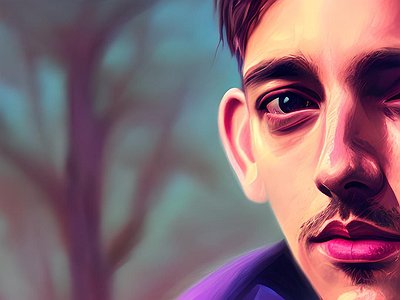Name: Cristian Vogel
Nationality: British
Occupation: Producer, composer
Current release: Cristian Vogel's Fase Montuno is out via Mille Plateaux.
For a deeper look into his views, check out our previous Cristian Vogel interview.
The views of society towards technology are subject to constant change. How would you describe yours?
As a lifelong electronic sound artist, my views on technology are complex and nuanced, but almost always optimistic and process aware.
What are currently your creative goals and how are technologies helping you reach them?
My current creative goals are like always, to innovate in sound forms and other forms of expression that can accompany or support the impact of sonic culture.
How and for what reasons has your music set-up evolved over the years and what are currently some of the most important pieces of gear and software for you?
My studio has evolved through a process of technical refinement and self-taught engineering knowledge.
Have there been technologies which have profoundly influenced, changed or questioned the way you make music?
Any creative technologies that seem to elude classification as genre or style are always of great interest to me.
From my point of view, the three key factors which have driven music technology over the past decades are mobility, affordability, and (easy) usability. How important are these for your own work – and did I miss any?
Mobility maybe. Usability, affordability don't figure much for me.
Technology is usually associated with innovation and progress. Are these also important considerations for your music? What is the relation between innotative tools and "innovative music"?
Music is process, not progress. The motivation is to engage and keep engaging in the process.
An artist drowns a little bit in that process but emerges with discrete art objects, which are safe for consumption by others.
Late producer SOPHIE said: “You have the possibility with electronic music to generate any texture, and any sound. So why would any musician want to limit themselves?” What's your take on that and the relevance of limitations in your set-up and process?
Constraints are useful. They force the brain to grow in new directions, to problem solve.
The choice in creative tools can be overwhelming. Are there ways to deal with- and embrace this wealth and channel it to support your creative goals?
Making choices and being responsible for sustaining the outcomes of those choices, is difficult; no-one ever said it was going to be easy to be alive.
The sound sculpting capacities of current music technology are remarkable. So is the abundance of high-quality and ready-to-use samples. Which of these do you prefer and what does your process of working with them look like?
I don't really use samples made by others, I enjoy crafting my own ingredients.
Sometimes, I dive into archival field recordings for inspiration though.
Within a digital working environment, it is possible to compile huge archives of ideas for later use. Tell me a bit about your strategies of building such an archive and how you put these ideas and sketches to use.
I am working on that. I think an artist's studio archives are an incredibly valuable asset.
I am thinking machine learning models built on archives could be revolutionary for many.
In many of our 15 Questions interviews, artists have emphasised the happy accidents as a result of human imperfections and unreliable machines. What's your view on this and how does an element of surprise enter your productions?
I don't like unreliable machines. I don't like undefined behaviour in systems. It is a fault. If imperfect results is an outcome, one needs to be able to know how to measure them by - which means knowing how to reach desired outcomes first, then loosen parameters from there.
Don't start anything from a position of not understanding unless you are ready for a lot of trial and error.
Production tools can already suggest compositional ideas on their own. How much of your music is based on concepts and ideas you had before entering the studio, how much of it is triggered by equipment, software and apps?
The studio is the result of my concepts and ideas, so it is a crucible for forging products.
To some, the advent of AI and 'intelligent' composing tools offers potential for machines to contribute to the creative process. What are your hopes, fears, expectations and possible concrete plans in this regard?
I hope music creators and sound creators might finally stop being exploited, as it becomes apparent to consumers that it is actually really difficult to create quality material.
If you could make a wish for the future – what are developments in tools/instruments you would like to see and hear?
I'd like to see technology being applied to help people who have lost - or never had their sense of hearing - to directly experience the profundity of music culture somehow.




